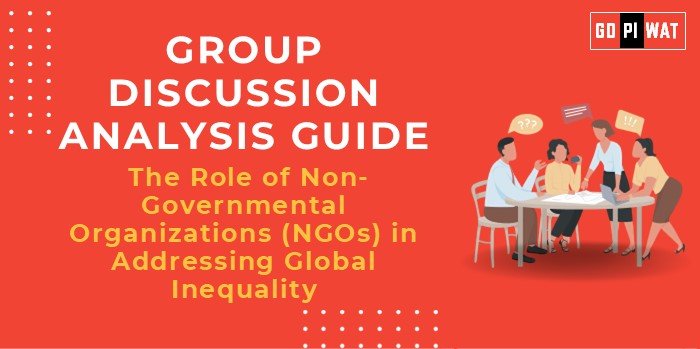🌍 The Role of Non-Governmental Organizations (NGOs) in Addressing Global Inequality
📋 Introduction to the Role of NGOs
“Non-Governmental Organizations (NGOs) bridge gaps left by governments and corporations in tackling global inequality. From education to climate change, their work impacts millions annually. Originating post-World War II, NGOs have evolved into essential players in advocacy, service delivery, and systemic change.”
📊 Quick Facts and Key Statistics
- 🌍 Global Presence: Over 10 million NGOs operate worldwide.
- 💰 Financial Contribution: NGOs receive $20 billion annually in development aid (OECD, 2023).
- 🏥 Healthcare Impact: Deliver critical services to 1 billion underserved individuals annually (WHO, 2023).
- 📈 Economic Significance: Employ over 50 million people globally.
- 💡 Inequality Indicator: Wealthiest 1% control 50% of global wealth, underscoring the need for NGO intervention.
🏆 Achievements of NGOs
- 📚 Education: Room to Read improved literacy for 20 million children globally.
- 💉 Healthcare: Médecins Sans Frontières provides emergency medical aid in over 70 countries.
- 💰 Economic Empowerment: Grameen Bank’s microfinance lifted millions out of poverty in Bangladesh.
- 📜 Policy Advocacy: Amnesty International influenced human rights policies worldwide.
⚠️ Challenges Faced by NGOs
- 💸 Funding Dependency: Over-reliance on donor contributions affects sustainability.
- 📊 Accountability: Transparency challenges undermine public trust.
- ⚖️ Operational Barriers: Bureaucratic hurdles in conflict zones slow down impact.
🌐 Global Comparisons and Case Studies
- ✅ Nordic Countries: NGOs leverage strong public-private partnerships for sustained development.
- 🌍 BRAC (Bangladesh): Reduced rural poverty by 30% through integrated development programs.
- 📂 Africa: NGOs face systemic challenges like political instability and lack of resources.
💬 Sample Arguments for Discussion
Supporting Stance
“NGOs are indispensable in reducing inequalities, as evidenced by successes in education and healthcare delivery.”
Opposing Stance
“Despite notable contributions, NGOs lack the scale and accountability to address systemic global issues effectively.”
Balanced Perspective
“NGOs play a vital role but need stronger collaboration with governments and corporations to maximize their impact.”
🔮 Strategic Analysis of Strengths and Weaknesses
- ✅ Strengths: Global reach, grassroots connectivity, and innovation.
- ⚠️ Weaknesses: Funding dependency and operational inefficiencies.
- 🌟 Opportunities: Leveraging AI for impact tracking and efficiency.
- ⚡ Threats: Political interference and donor fatigue.
📌 Connecting with B-School Applications
- 📈 Real-World Applications: Case studies on NGO operations and public-private partnerships.
- 🗣️ Sample Interview Questions:
- “How can NGOs influence policy to address global inequality?”
- “What role can business leaders play in NGO partnerships?”
- 💡 Insights for Students: CSR-focused projects and economic impact analysis opportunities.


